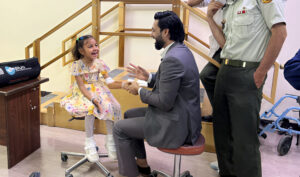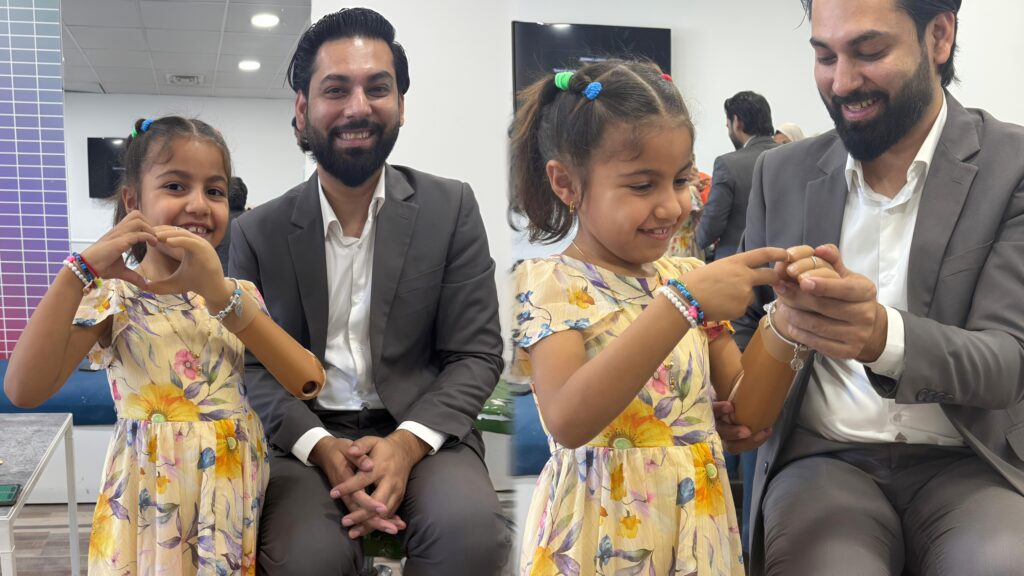Pakistani health-tech startup Bioniks has achieved a significant milestone by fitting its first prosthetic limb for a conflict survivor outside the country. The team recently equipped eight-year-old Sidra Al Bordeeni, a young Palestinian girl who lost her arm during an airstrike in Gaza, with a custom 3D-printed prosthetic arm at a refugee camp in Jordan.

This initiative, carried out in partnership with Jordan’s Mafaz Clinic, marks Bioniks’ first international humanitarian deployment. Known for producing smart, 3D-printed prosthetics within Pakistan, the startup is now extending its reach to conflict zones, starting with Gaza. The mission reflects Bioniks’ growing commitment to supporting amputees affected by war and displacement.
Sidra was injured last year while sheltering at the Nuseirat School in Gaza, which had been converted into a temporary refuge during Israeli strikes. The attack caused irreparable damage to her arm, and her family — unable to access proper medical care or leave the besieged territory — could not save it. After months of pain and displacement, Sidra was finally fitted with a new limb in Amman. Her joy was immediate: she returned from the clinic, jumped on a bicycle, and rode for the first time since her injury.
Speaking about the life-changing moment, Sidra’s mother, Sabreen Al Bordeeni, expressed heartfelt gratitude. “I’m overjoyed to see my daughter smiling again,” she said. “She’s outside playing, and her friends are amazed by her new arm. I can’t thank Bioniks enough for bringing happiness back into her life.”
Bioniks co-founder and CEO, Anas Niaz, personally traveled from Karachi to Amman to complete the final fitting. He said Sidra underwent weeks of remote evaluations and digital modeling before receiving the device. While Bioniks has fitted over a thousand individuals within Pakistan since 2021 — primarily children — this was their first overseas delivery, made possible through cross-border collaboration and digital innovation.

The prosthetic arm was funded by Mafaz Clinic in Amman, whose CEO, Entesar Asaker, said the partnership with Bioniks was based on affordability and accessibility. “We were impressed by their ability to design, adjust, and deliver remotely. Their model reduces cost without compromising quality,” she explained. In contrast to Western prosthetics that can cost up to $20,000, Bioniks delivers functional arms for around $2,500.
Reflecting on the broader mission, Niaz emphasized that mobility should not be a luxury. “Our belief is simple — no one should be excluded from dignity and movement because of cost or geography,” he said. “Sidra’s story is only the beginning. We aim to help more children and adults affected by war rebuild their independence.”
Bioniks has previously worked with rehabilitation centers and public hospitals across Pakistan to provide smart prosthetics to underserved communities. Relying on a hybrid model of crowdfunding, sponsorship, and charitable donations, the company has transformed the lives of hundreds who could not afford conventional prosthetics.






